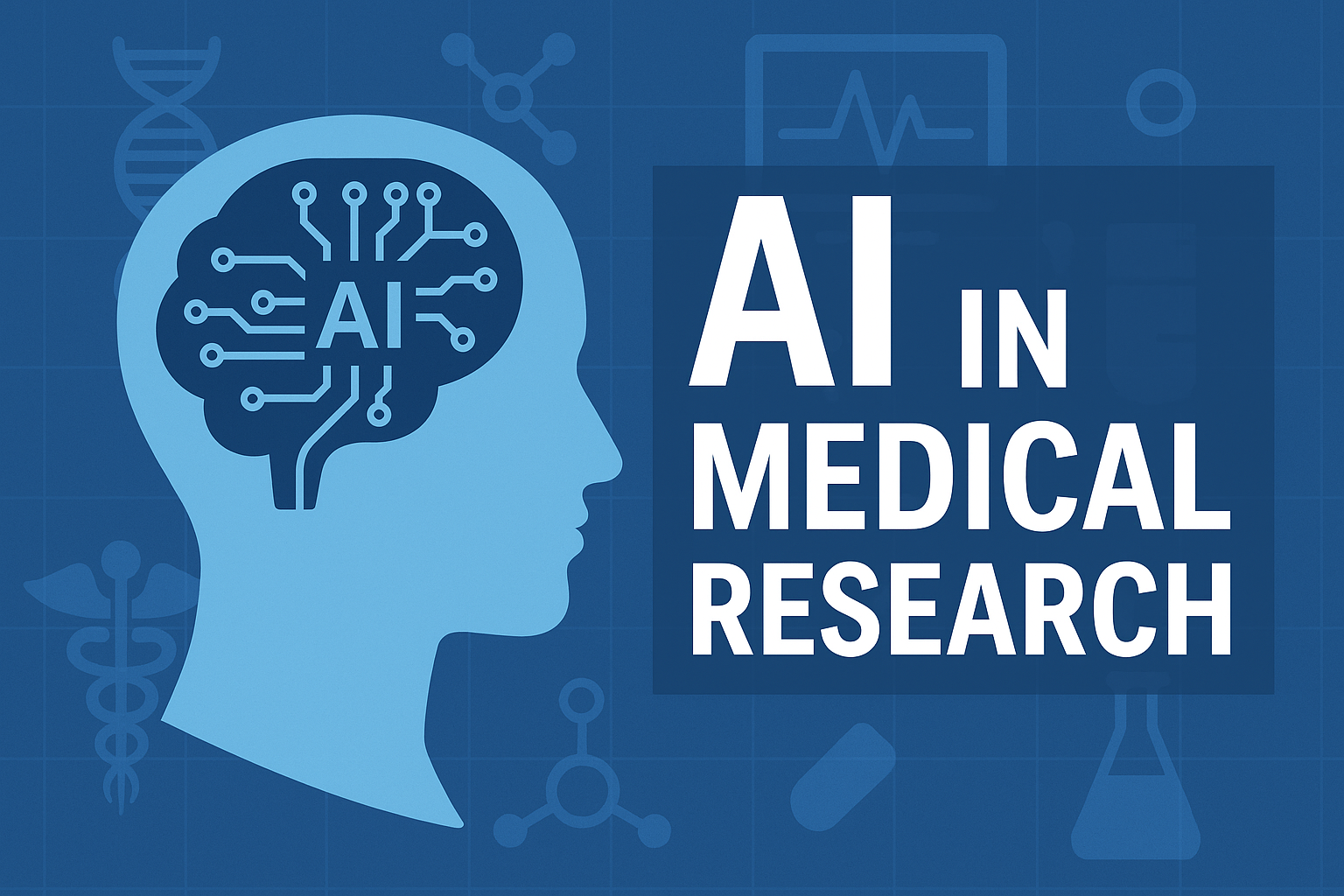Introduction
In recent years, Artificial Intelligence (AI) has emerged as a game-changing technology across multiple industries. But perhaps its most transformative impact is being felt in the realm of medical research. From accelerating drug discovery to predicting disease outbreaks, AI is not only enhancing research efficiency but also shaping the future of personalized medicine.
In this article, we’ll explore how AI in medical research is revolutionizing healthcare, its benefits, applications, challenges, and what the future holds.
What Is AI in Medical Research?
AI in medical research refers to the use of machine learning algorithms and data analytics to simulate human intelligence processes, such as learning, reasoning, and problem-solving, to assist and enhance medical studies. These tools analyze vast amounts of medical data—something impossible for humans alone—to uncover patterns, make predictions, and generate new insights.
Watch this interesting video about AI by stanford –
Key Applications of AI in Medical Research
1. Drug Discovery and Development
AI significantly reduces the time and cost required to discover new drugs. Algorithms can:
-
Predict how different compounds will interact with targets.
-
Identify potential side effects early.
-
Optimize clinical trial design.
For example, companies like Insilico Medicine and DeepMind are using AI to design new molecules and predict protein structures.
2. Genomics and Precision Medicine
AI helps decode complex genomic data, leading to:
-
Personalized treatment plans based on genetic profiles.
-
Faster identification of disease-causing mutations.
-
Improved cancer diagnosis and therapy.
3. Clinical Trials Optimization
Recruiting the right participants and predicting outcomes is a major challenge in research. AI improves:
-
Patient selection using EHR data.
-
Monitoring patient adherence and side effects.
-
Analyzing trial results more accurately.
4. Medical Imaging and Diagnostics
Machine learning models can analyze:
-
CT scans, MRIs, and X-rays faster than humans.
-
Early signs of diseases like cancer, Alzheimer’s, and heart conditions.
This boosts diagnostic accuracy and enables early intervention.
5. Epidemiology and Public Health
AI predicts and tracks disease outbreaks by:
-
Analyzing social media trends.
-
Integrating data from multiple sources (weather, travel, etc.).
-
Modeling the spread of infections like COVID-19 or influenza.
Benefits of AI in Medical Research
-
Speed: Faster data analysis and insights.
-
Accuracy: Reduced human error and enhanced diagnostics.
-
Cost-effectiveness: Cuts down the time and cost of clinical trials and drug development.
-
Personalization: Enables tailored treatments based on individual data.
-
Scalability: Can process massive datasets that are beyond human capability.
Challenges and Ethical Concerns
Despite its potential, the use of AI in healthcare research poses certain challenges:
-
Data Privacy and Security: Handling sensitive health data requires robust cybersecurity.
-
Bias in Algorithms: Models trained on biased data may lead to unfair outcomes.
-
Lack of Transparency: “Black box” models can make it difficult to understand how decisions are made.
-
Regulatory Approval: AI-driven findings must comply with strict medical standards and regulations.
The Future of AI in Medical Research
As AI technology matures, its integration with other innovations like blockchain, IoT, and robotics will redefine how we approach medical research. Future developments may include:
-
Real-time research updates through wearable health devices.
-
Autonomous clinical trials powered by AI.
-
AI-generated hypotheses guiding human researchers.
Conclusion
Artificial intelligence in medical research is not just a futuristic concept—it is already delivering tangible results. By harnessing its power, we can expect faster, safer, and more personalized healthcare solutions. While challenges remain, the benefits far outweigh the risks, making AI a cornerstone of modern medical innovation.
Embrace the future of medicine—where AI meets human intelligence to save lives.
FAQs
Q1: How does AI improve drug discovery?
AI analyzes molecular data to predict drug efficacy, side effects, and optimal dosages, accelerating the R&D process.
Q2: Is AI replacing doctors or researchers?
No. AI is a powerful tool that augments human expertise, not replaces it.
Q3: Is AI in medical research safe?
When implemented responsibly with transparent algorithms and data protection, AI can be safe and highly effective.
Read our article on Trending Thesis Topics – https://zoopanalysis.com/trending-thesis-topics-in-preventive-and-social-medicine-psm/


